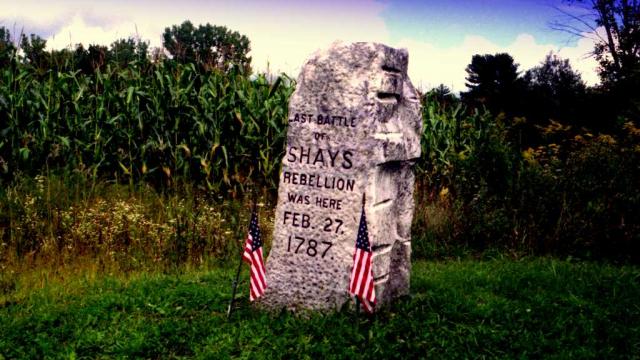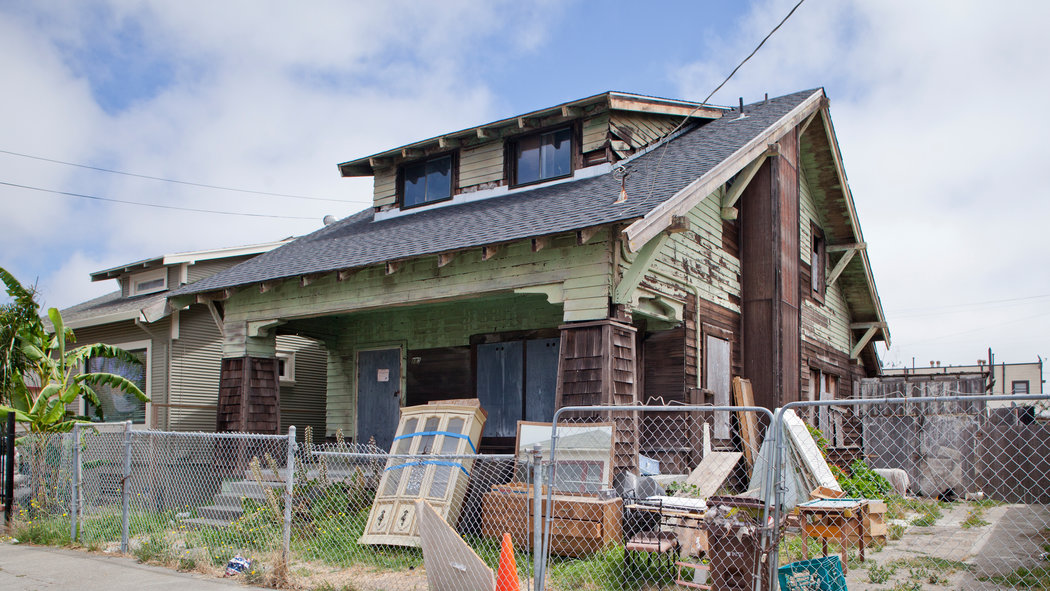
Debt relief. Sound good? Not to the Founders. If you’re paying close attention, you may have seen reports that the city of Richmond, Calif., is threatening to use the legal power of eminent domain to condemn mortgages for underwater homeowners – those who owe more than their house is worth – and force whoever owns the mortgage to sell it to the city, which will adjust the terms and re-sell the mortgage at fair market value.
Interestingly, mortgage relief schemes played an important role in our nation’s history. It's hard to believe now, but in the 1780s, immediately after the American Revolutionary War, it was not clear that the new United States of America would survive long as an independent nation. What passed for a federal government was then defined by the Articles of Confederation, a document the Continental Congress adopted during the emergency of the Revolutionary War.
Few signers actually liked the Articles, but they needed an initial document to get the fledgling nation through the war, so they approved it.
The Articles of Confederation gave the central government no independent power to tax, leaving it at the mercy of the individual states to provide revenue. As a result, after the War ended the United States was bankrupt, unable to pay the war debts it had incurred to foreign nations – and unable to prevent the individual states from waging economic war on each other by prohibiting the importation of goods from other states.
To handle the situation, many states passed laws to help debtors; for example, by forgiving debts entirely and printing more paper money. Massachusetts, however, did not. In the western end of that state, many new farms and new farmers had borrowed to start their farms. Foreclosures became increasingly common. Finally, a mini-revolution erupted in which angry farmers organized themselves, shut down the courts to prevent foreclosures, and released debtors from prison.
Many could say the underlying social conditions then resembled parts of the United States today. But so far no one has tried to shut down courts, and we usually don’t put debtors any longer into prison (though don’t miss any court dates).
Shay’s Rebellion gave added urgency to the plan to hold a convention in Philadelphia in 1787, which charged Congress with the duty of considering revisions to the Articles of Confederation. That convention, as we know, famously produced the U.S. Constitution. However, no one like Daniel Shays was there. No small to middling farmers participated in the Constitutional Convention, so the Constitution we got mostly represented perspectives of the existing national leadership.
Interestingly, however, the Constitution did assume the legitimacy of the same basic practice that Richmond is now relying on – the use of eminent domain for the public good – and it did so by regulating it. The Fifth Amendment, more famous for containing the privilege against self-incrimination (“I plead the fifth”), also provides, “nor shall private property be taken for public use, without just compensation.”
This assumes that the long-standing practice of what we now call “takings” by government will continue. And it is actually necessary, in many instances. During the 19th century, the U.S. came to possess huge amounts of land whose only inhabitants were Native Americans. Their rights and interests, though, were not up for consideration and thus the land was deemed “uninhabited.”
But in populated areas – and once private owners bought up the land that America's population would expand on to – large-scale public projects took on new meaning, with new conflicts. In the case of the interstate highway system of the 1950s, even in a republic as rooted in individual and property rights as ours, the "public good" trumped the individual’s right to private property.
In this way, eminent domain continues to this day. But note: the potential stumbling block for Richmond lies in the clause of “just compensation.” Richmond has proposed to pay owners of underwater mortgages 80 percent of the fair market value of the house – which, under existing law, may not in fact qualify as “fair market value.” And it will be the jury, in the end, which decides what the "fair market value" actually is.
The city's plan to seize mortgages by eminent domain, if the banks won't voluntarily sell them to be refinanced, is a bold and controversial one. Which is why Richmond's legislators don't want to give the courts any more reason to strike it down – especially not in a Republic whose founding laws tilt in favor of the bankers.
3 WAYS TO SHOW YOUR SUPPORT
- Log in to post comments













